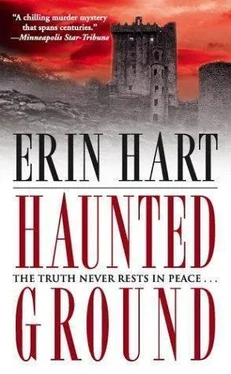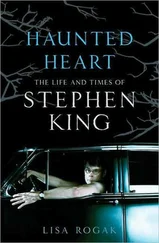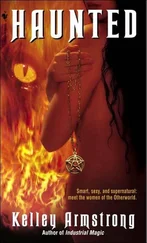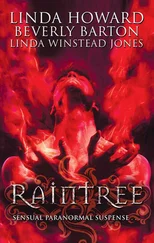“All right.” He’d let her tighten the octagonal nut at the end of the bow, and slide the rosin block up and down its length. “Remember that you must never touch the hairs on the bow.” He guided her fingers around the frog, placing each one where it ought to go, then let her feel the weight of it in her hand, and finally, in her whole arm. “It all happens with the elbow and the wrist, not the shoulder—like this,” he said, demonstrating with an invisible bow. “Keep in mind that you’re making music, not sawing wood.” Roisin nodded.
“Now the fingering,” Devaney said. Leaning forward, he gently placed his daughter’s fingers in the positions she would use to play a simple scale and called out the names of the notes as he did so. He waited for a moment, touched by the sincerity of her gaze as she concentrated on all the strange new sensations. Devaney felt disarmed, utterly defenseless in the presence of this fierce determination.
“Lash away,” he said, and she looked at him with eyes grown round in disbelief. “Go ahead,” he said, “make some noise.” She tentatively set the bow on the fiddle strings, where it bounced a couple of times, then pulled, letting the weight of it make a deep, vibrating groan. A small smile and a look of surprise and pleasure crossed her face, then she wrinkled her nose.
“Go mad,” he said. “Try them all.”
Roisin bent the bow this way and that, testing the sonorous, deep notes, the high, thin sounds she could produce, chording two notes together as she pulled the rosin-laden bow over the strings. He gestured, showing her in mime how to use the full length of the bow, and she followed his example, at least as far as her short arms would allow. Even as he beheld the pleasure she took in these first few sounds, Devaney pictured the hurdles they still faced, and felt suddenly inadequate as a musician, as a teacher, and as a father. As he listened to Roisin’s first dreadful attempt at a scale, he thought of Orla and Padraig, and how he’d missed the few chances he had to be closer to them. He’d better not ruin this—his final chance, as he thought of it—by proving too harsh a teacher.
“Is there any tune you know that you’d like to play? How about ‘Paidin O’Rafferty’? You know that one, don’t you?” He lilted the first few bars, until the spark of recognition lit up her face.
“That’s the tune they play at the end of ‘Ceili House’ on the radio.” Devaney hadn’t even realized it, but Roisin was right. She was already listening like a musician, and there was no substitute for that. They worked away at the melody for the next half hour, stumbling painfully through it a few times, until she had the notes and the fingering right.
“Well, how did you like your first lesson?”
“Daddy,” she said, chiding him for teasing her.
“That was it. And what you can do now is to take the fiddle to someplace nice and quiet”—not to mention as far away from human hearing as possible, he thought to himself—“and practice that tune and a few scales, and get used to it, especially the feel of the bow. We’ll try another tune tomorrow.”
She looked slightly incredulous, but nodded anyway.
“And we should see about getting you a smaller fiddle. I’ll ask around. Then you can practice whenever you like.”
Roisin held the fiddle and bow in her left hand, and bent at the knees to gather up the case from the table. “Don’t worry, Daddy, I’ll be careful,” she said when she reached the door. “I’m going to practice a lot and be very good, I promise.” She scurried off down the hall, holding the fiddle before her like a prize.
“We’ll see,” said Devaney quietly to himself. He resisted the urge to be as enthusiastic as he wanted to be. He’d already let himself imagine playing a duet with Roisin here in the kitchen, a vision that had prompted a curious tightness in his chest.
He turned his attention to a thick file that lay on the table. For several days he’d thought of almost nothing but the Osborne case, going over and over the details, trying to find a loose corner, a crack in someone’s story. There had to be some way in. The opening was here—probably staring him in the face, if he only knew where to look. He tried to focus his mind on Mina Osborne’s journey between Point A, Pilkington’s shop in Dunbeg, and Point B, Bracklyn House. Where did she stop? Had she gladly accepted the offer of a lift from someone she knew, or been bundled into a windowless van against her will? And what wild creature along that empty stretch of road had been a witness to what actually transpired? Then there was Osborne, somewhere off on the periphery, on his way from Shannon, he said, and the only person in the whole equation who had no one to vouch for him during that time, and he was the one person who had the strongest motive. The best possibilities were still murder or flight. If it was murder, why were items of clothing missing from the house? And whose word did they have that the pair had never arrived home? Only that of Jeremy and Lucy Osborne, who might be looking after their own best interests. They could even be involved in some way. Devaney’s head ached. If only he had someone he could use as a sounding board. The details were disjointed from every angle. Nothing seemed to fit—but it must fit one way, and that was the way it had really happened. This kitchen-table detective work was fucking hopeless. He should be out there talking to people, doing something, instead of sitting here getting tied up in knots.
Everything rested on getting to the essence of this fellow Osborne. Some of the statements from people in the village had mentioned his reputation as a playboy in years past, with a whole string of girlfriends—a different one every time he was home from university, people said, and many of them foreigners. So the man had a taste for the exotic. He was also handsome, considerate, apparently well off—on the face of it, exactly the kind of man that women generally adored.
Devaney started sketching out the scenario: Osborne meets Mina Gonsalves while he’s over teaching a summer course at Oxford. Nature follows its course and she gets pregnant, so he does the honorable thing and marries her; they settle back in Ireland. Devaney now felt he could see a hairline crack in the perfect marriage. They’re reasonably happy, for a time, but then he’s back at his old ways. Maybe he’d married her for money, not anticipating that the father might cut her off.
Now that his wife was out of the picture, Osborne had enlisted the support of Una McGann and Mrs. Gonsalves. Interesting how it was always the women who believed in his innocence. No doubt if Osborne ever went to prison for this crime, there would be some female trying to rally supporters in his defense. There was nothing quite so dangerous as a professional pity-hound, Devaney thought. A man like that could twist the good nature in people to his own purposes, even have them feeling sorry for him, and trying to rationalize his violent outbursts.
He flipped to the page listing Osborne’s assets. For a member of the so-called gentry, the poor sod didn’t have much—a modest salary from the university, not many investments, nothing but a couple of small parcels of land and the house. A house like that was always in need of major repairs, not to mention a bugger of a tax liability. What would happen if a man like Osborne got to feeling boxed in by marriage and money troubles at the same time?
All right, supposing Osborne wanted money, Devaney thought, leaning back in his chair. The development scheme could be one way to get it; banks would see a model public/private investment, and no doubt the government ministers in Dublin would piss themselves for the chance to fund such a worthwhile cultural project. But would that be enough? Osborne had no more land to sell off, no other major assets that he could liquidate, except the house and the insurance. When he’d phoned a couple of days ago, Reidy the insurance agent had told him Osborne kept up to date on the premiums after his wife’s disappearance. Nothing funny about that; he’d probably been advised to keep paying. If the wife was dead, why not just produce the body? Why drag it out, unless there was something that would point the finger at him, or unless—
Читать дальше











